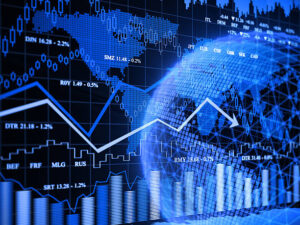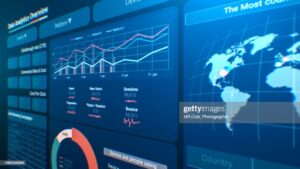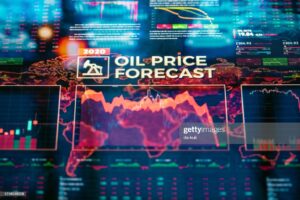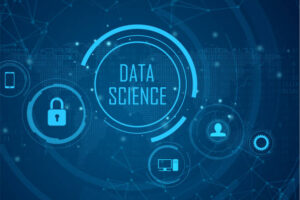Economic recessions are formidable challenges that affect individuals, businesses, and nations alike. However, in our data-driven era, data science emerges as a powerful ally in steering economies out of recession. In this blog, we’ll explore how data science can play a pivotal role in economic recovery, and we’ll provide you with valuable resources to dive deeper into this transformative field.
Understanding Economic Recessions
Before we delve into the solutions, it’s essential to grasp what an economic recession entails:
An economic recession is marked by a significant downturn in economic activity, including declining GDP, rising unemployment, reduced consumer spending, and a general economic slowdown. These downturns can result from various factors, such as financial crises, external shocks, or structural economic issues.
The Role of Data Science in Economic Recovery
Data science leverages advanced analytical techniques, artificial intelligence, and big data to extract meaningful insights from vast datasets. Here’s how data science can contribute to the recovery process during an economic recession:
- Predictive Analytics: Data science can forecast economic trends and potential downturns, providing policymakers and businesses with early warning signals. These insights enable proactive measures to mitigate the impact of a recession.
- Resource Allocation: In a recession, resources become scarcer. Data science helps optimize resource allocation by identifying areas where investments can yield the highest returns, both for governments and businesses.
- Consumer Behavior Analysis: Understanding how consumers respond during a recession is vital. Data science can analyze consumer data to uncover changing preferences and spending patterns, enabling businesses to adapt their strategies accordingly.
- Financial Risk Management: Financial institutions use data-driven models to assess and manage lending and investment risks, reducing the likelihood of financial crises that contribute to recessions.
- Supply Chain Optimization: Data science optimizes supply chains, ensuring the efficient production and distribution of essential goods and services. This minimizes disruptions during a recession.
- Government Policy Insights: Governments can employ data science to inform policy decisions. This includes crafting stimulus packages, unemployment benefits, and targeted interventions to support vulnerable populations.
Business data Analytics and financial dashboard abstract background
Real-World Applications
Explore these real-world examples to see how data science has been applied to address economic challenges:
- COVID-19 Response: Data science played a critical role in monitoring and responding to the pandemic. It provided insights on infection rates, vaccine distribution, and economic impacts.
- Financial Market Analysis: Data-driven algorithms are employed in financial markets to assess risk and make trading decisions, contributing to market stability during economic crises.
- Retail Inventory Management: Retailers utilize data science to optimize inventory levels, ensuring they have the right products on hand to meet fluctuating demand.
- Predictive Maintenance: In manufacturing, data science is used for predictive maintenance, reducing downtime and optimizing production efficiency.
Oil Price Forecast Background. Close-up of LCD display
Challenges and Ethical Considerations
While data science offers tremendous potential, it raises challenges and ethical considerations. Concerns such as data privacy, algorithmic bias, and security must be addressed to ensure that data-driven solutions are fair and responsible.
Resources for Further Exploration
To deepen your understanding of the role of data science in economic recovery, consider these resources:
- Data Science for Economic Recovery (World Bank): Explore this comprehensive report that highlights the potential of data science in addressing economic challenges.
- Data Science and Economic Recovery (Harvard Business Review): This article discusses how data science can help organizations navigate economic downturns.
- Data Science for Business (Book): Delve into the fundamental concepts of data science and its practical applications in business and economics.
Abstract technical background
Data Science: Illuminating the Path Out of Economic Recession
Data science is a potent tool for guiding economies out of recession. By harnessing data and advanced analytics, we can predict economic trends, allocate resources wisely, and make informed decisions. It empowers governments, businesses, and individuals to navigate economic challenges and emerge stronger.
As we continue to advance in the data-driven era, data science will play an increasingly critical role in shaping economic recoveries and building more resilient global economies.
Embrace data science as a powerful means to lead us toward economic stability and prosperity in times of uncertainty.




